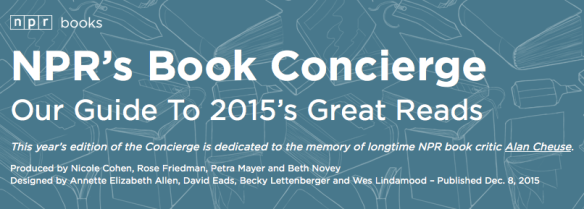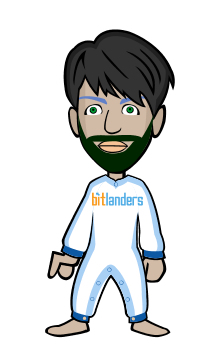Need-to-Know News: 8 Cutting-edge Tech Trends, MOOCs in 2016, Engaging Sites Featuring Books-of-the-Year
This ‘Need-to-Know’ blog post series features noteworthy stories that speak of need-to-know developments within higher education and K-12 that have the potential to influence, challenge and/or transform traditional education as we know it.
 If you are looking for some light reading over the holidays or ideas for some good reads for yourself or others, look no further. I’ve rounded up some articles of interest and a couple of good websites that feature books-of-the year in an interactive and creative format.
If you are looking for some light reading over the holidays or ideas for some good reads for yourself or others, look no further. I’ve rounded up some articles of interest and a couple of good websites that feature books-of-the year in an interactive and creative format.
1. HBR Tech Review: Eight Trends to Watch
An article in this month’s Harvard Business Review “8 Tech Trends to Watch in 2016” written by CEO and founder of an international digital strategy firm, is not your average trends-to-watch for article. It’s cutting edge stuff. Of the eight tech trends only one, blockchain was somewhat familiar (used by Bitcoin, it’s a complex transaction system that enables buyers and sellers to engage in “trustless” transactions). The article describes up-and-coming technology such as drone lanes, glitches and algorithmic personality detection. Fascinating stuff.
Insight: The education sector isn’t always on the cutting edge of technology, as we’ve seen with MOOCs, e.g. an innovative delivery system delivering education via traditional methods, yet there is potential in some of the technologies mentioned for application to education. For instance algorithmic personality detection might be used for student services such as career planning and academic support, bots as personal tutors, and augmented knowledge also known as digital telepathy which may make us question ‘what is learning’?
- 8 Tech Trends to Watch in 2016. Amy Webb
- Augmented Knowledge Roundtable, EmTech
- The trust machine. The Economist
2. MOOCs: (Not just) From a European Perspective
The open journal, International Review of Research in Open and Distributed Learning (IRRODL) features a special issue this November with it’s a collection of papers that explore the MOOC phenomenon from the perspective of the higher education community in Europe. Though the majority of papers focus on the European perspective, a handful address themes universal to the MOOC phenomenon such as open access and course design.
The paper “MOOCs and the claim of education for all: A disillusion by empirical data” explores the controversial claim that MOOCs are vehicles that democratize education, which as we know now, hasn’t quite panned out. The excerpt below summarizes the paper:
Despite the hope for more equal access to education through MOOCs, the empirical data show (section 4) that MOOCs potentially reinforce inequality. In this article we will give a theoretical background to explain why MOOCs are mostly used by more highly educated people (section 2) and stimulate a discussion on if and how MOOCs can contribute to equal access to education promoted by Open Educational Resources. (Rohs & Ganz, 2015).
Another, “Dimensions of Openness: Beyond the Course as an Open Format in Online Education” argues that openness in education via MOOCs should not only be viewed as opening access to existing resources and courses for a broader audience, but as the removal of barriers for interaction and exchange (Dalsgarrd & Thestrup, 2015).
Another paper with universal applicability is “Theories and Applications of Massive Online Open Courses (MOOCs): The Case for Hybrid Design“. This paper outlines a hybrid design model and discusses appropriate application as well the significant design challenges specific to MOOCs.
Insight: The term MOOCs now covers a breadth of education programs that are not always open, massive or meet the definition of a course (with a start and end date). The articles in this special issue are a good representation of the current themes. Though I go further and suggest that 2016 will be the year of the MOOC reckoning, as alluded to in a recent post on the Ed Techie blog, “2016 – The year of MOOC hard questions”.
3. Nifty Sites featuring Books-of-the-Year
I came across a couple of engaging, interactive sites by NPR, The Guardian and The Globe and Mail featuring best books of 2015 in various categories. These sites go beyond the traditional, static webpage; they invite the user to engage with the content. We’ll likely be seeing more of this interactive home page format in 2016, as according to Fast Company this is the new look of webpages.

NPR’s Book Concierge features an interactive site where you can filter by genre, read highlights, and look at NPR’s Best-Book lists for each year starting in 2008
- Best Books of 2015, NPR Book Concierge app
- Best Books of 2015, The Guardian
- The Best Books of 2015, The Globe and Mail
Closing Thoughts
Speaking of books, I’ll be publishing “Seven Must-Read Education Books for 2016” by the end of the year. Stay tuned. Following that I’ll also share my views in a post on the ed tech trends that will affect education in 2016.
Happy Holidays to all and thanks for reading and making Online Learning Insights happen by your continued reading and sharing!



